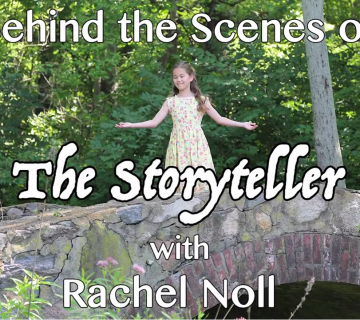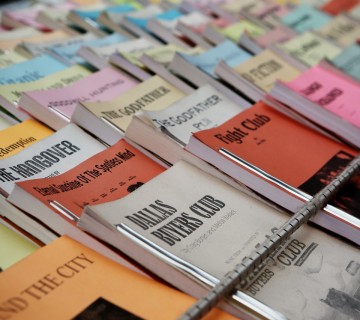It’s been said many a time: “Write what you know.” But say your brilliant idea for your next screenplay involves a post-apocalyptic interspecies love story – how would you go about that? The world hasn’t ended (yet) and you’re (hopefully) not in love with another species. You do research.
Sure, you won’t be able to find any non-fiction literature about this exact topic, but there are ways around that. You can break it down. Science already knows what would happen to earth if humans were taken out of the equation. Or the worldwide impact of a nuclear war. There are also documented cases of different species crossbreeding. Or you can research an emotionally similar situation, like a well-documented mixed-race relationship in a 1920’s segregated America. Then let your imagination do the rest. Research can give you the building blocks for any kind of script, but why is it important, when do you do it and how much is needed?
Why?
If you write about something you know nothing (or very little) about, chances are it will feel fake. Remember that interesting characters are products not just of your creative whim, but of their own situation. Their place in the world. Their lot in life. The choices they make. If these places, circumstances and choices aren’t rooted in at least their own reality, then everything that character says or does will feel fake. Similarly, if you base your post-apocalyptic love story on your own ten favorite post-apocalyptic movies, then the world you’re creating will feel like a rehash rather than a rich, deep environment.
When?
The script pros might tell you that a good script begins with a great idea. A spark, as they say. I would agree. Instead of researching your way into a good story, research your way out of it. Know the basics of what kind of trouble you want to put your character in first, then use research to truthfully and accurately get her out of said trouble. If you start researching blindly, hoping to stumble across a good story, you could be looking for a very long time. Which brings us to the final question:
How much?
There are different thoughts on this and I think it’s important to distinguish between researching the world in which you are playing out your story, and the details pertaining to your plot. Once you have decided on a time and place for your story, you will need to do your research on the social, political, cultural and technological zeitgeist. Your characters will have different motivations and make different choices based on the environment you put them in, so make sure you know enough about that environment to sustain your viewer’s suspension of disbelief. If you’re writing about an American family in the 60’s, don’t have them plan their dream vacation to Cuba. And definitely don’t have them look up flight deals on their cellphones. You get the point. The research you need to do for the world of your story should be extensive, unless you’re writing about a time and place you are already very familiar with.
If you know enough about the world your story is set in, the plot should fit right in. The research needed for your plot details will then be more of the creative kind. It can be to give your language flavor and depth, like accurately naming the kind of spear an Amazon warrior uses to wound your protagonist as she treks through the jungle, or using factual, historical events as inspiration for what might happen to a homosexual character serving in the military.
For both kinds of research, however, the experts recommend giving yourself a limited amount of time before you need to bring your attention back to actually writing the damn thing. When researching the world, you might give yourself two months. That’s two months of documentaries, non-fiction literature, novels, articles – maybe even interviews with people who have lived in the time and place you are researching for. When researching plot, you might give yourself as little as one hour to go digging for clues whenever you need the inspiration. Google searches, wikipedia, trips to the library, call a friend – then back to work.
Creating your own system
So there you have the grand thoughts about doing research – but what about the nuts and bolts? Here are some tips and tricks.
1. Carry an idea workbook. This is a place you can jot down thoughts, facts, to-do lists and anything else that might come in handy when you sit yourself down to type. This is not so much your story bible, as it is your knowledge bank of everything you’ve gathered along the way. It’s unfiltered and full of creativity. It can be a Dropbox folder you can add to from both smartphone and laptop, or it can be – which I would personally prefer – a beautiful, leather-bound notebook.
2. Write down your overall plot summary. Then let that be your compass when doing research. If you feel yourself going down a rabbithole, return to your plot summary and ask yourself how this research benefits your plot. If it doesn’t, get back on track.
3. Set up interviews. Don’t be afraid to reach out to people you think will be able to offer an interesting perspective on the particular subject you’re researching. It’s part of the human psyche – we love talking about what we do or what we have done.
4. Know your stuff and don’t cut corners. You can use creative license, of course, but only do so when you’re doing so intentionally and not simply out of a lack of knowledge. Chances are that someone out there – a reader, a viewer, a producer, an actor – knows just as much as you, or more. Remember, you need to suspend disbelief, not create it.
And speaking of actors knowing their stuff, check out this list of 10 Actors Who Conducted Insane Research For Iconic Movie Roles.









Join the Conversation →